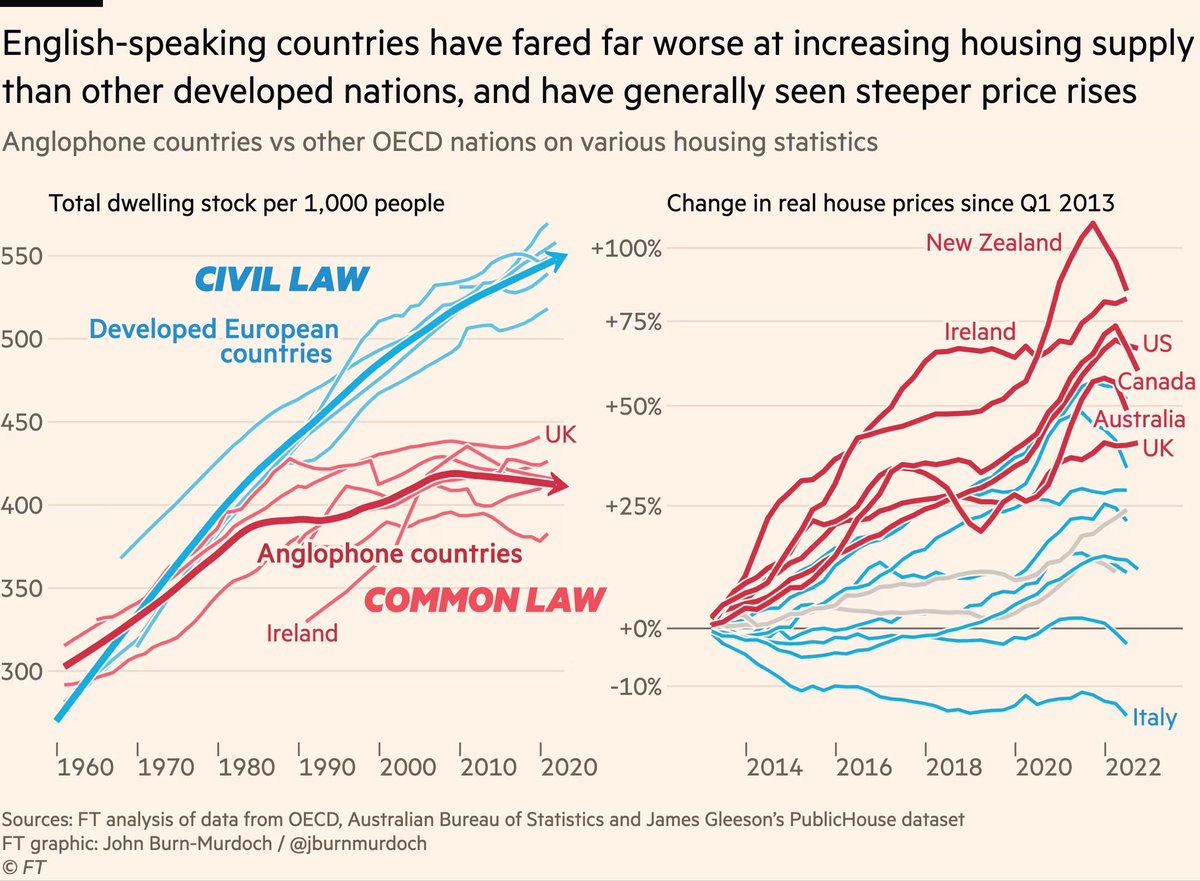NEW:
Britain’s grim winter of strikes, falling incomes and a worsening NHS crisis is not some unfortunate series of events
It’s the inevitable result of a decade of Tory austerity that steadily weakened the state’s capacity to respond to shocks
enterprise-sharing.ft.com/redeem/c540270…
Thread:
Britain’s grim winter of strikes, falling incomes and a worsening NHS crisis is not some unfortunate series of events
It’s the inevitable result of a decade of Tory austerity that steadily weakened the state’s capacity to respond to shocks
enterprise-sharing.ft.com/redeem/c540270…
Thread:
Let’s start with a straightforward chart and an uncontroversial statement.
British government spending and investment have declined in recent years, both as a share of GDP and relative to peer countries.
But this chart is a little drab, isn’t it. Let’s add some colour...
British government spending and investment have declined in recent years, both as a share of GDP and relative to peer countries.
But this chart is a little drab, isn’t it. Let’s add some colour...
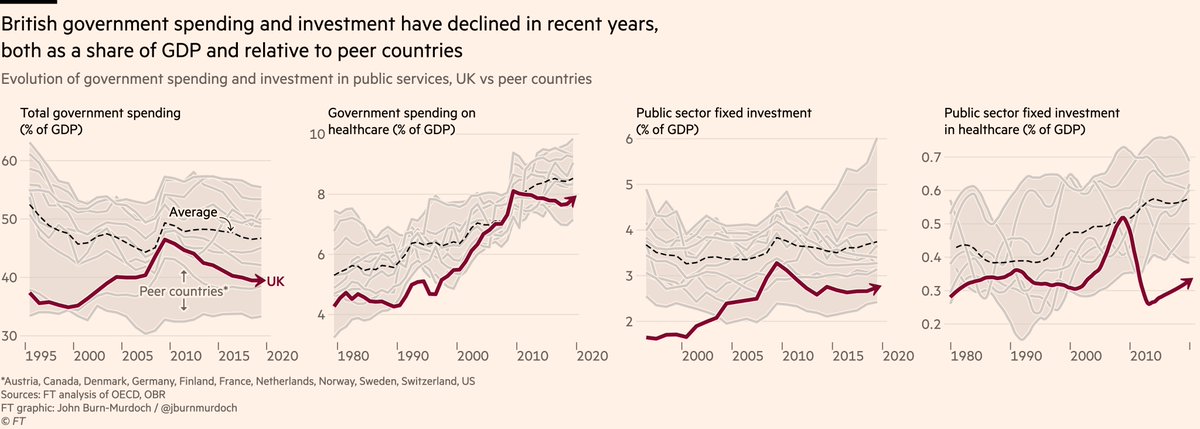
Here’s that same chart, but now highlighting which party was in power at which point.
The eagle-eyed among you may have noticed something.
When Labour were in power, spending and investment went up 📈
When the Conservatives came in, it went down 📉
The eagle-eyed among you may have noticed something.
When Labour were in power, spending and investment went up 📈
When the Conservatives came in, it went down 📉

Some will say the Tories’ hand was forced in 2010, that most countries had to tighten their belts as they faced off against the global financial crisis.
But the Tory belt-tightening was tighter than what other governments did in any of the UK’s peer countries.
But the Tory belt-tightening was tighter than what other governments did in any of the UK’s peer countries.

Technically speaking, the NHS budget was protected from the cuts, but with a rapidly ageing and ailing population, merely maintaining health spend has been proven insufficient.
Where Britain’s peers continued to grow health spending as a share of GDP, here it steadily declined.
Where Britain’s peers continued to grow health spending as a share of GDP, here it steadily declined.
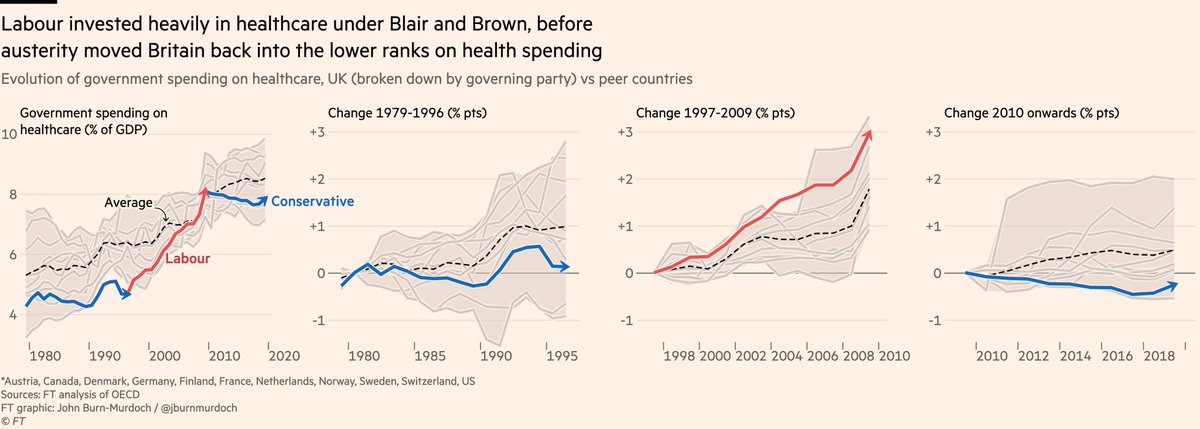
One very immediate result has been the squeeze on NHS staff pay.
Here’s what happened to nurses’ pay under Labour and Tory governments since 1997.
Nurses’ real-terms pay is now 12% below what it was on the eve of the 2010 election.
Here’s what happened to nurses’ pay under Labour and Tory governments since 1997.
Nurses’ real-terms pay is now 12% below what it was on the eve of the 2010 election.

It’s also worth taking a closer look at those remarkably deep cuts to healthcare capital investment in the early years of austerity. 
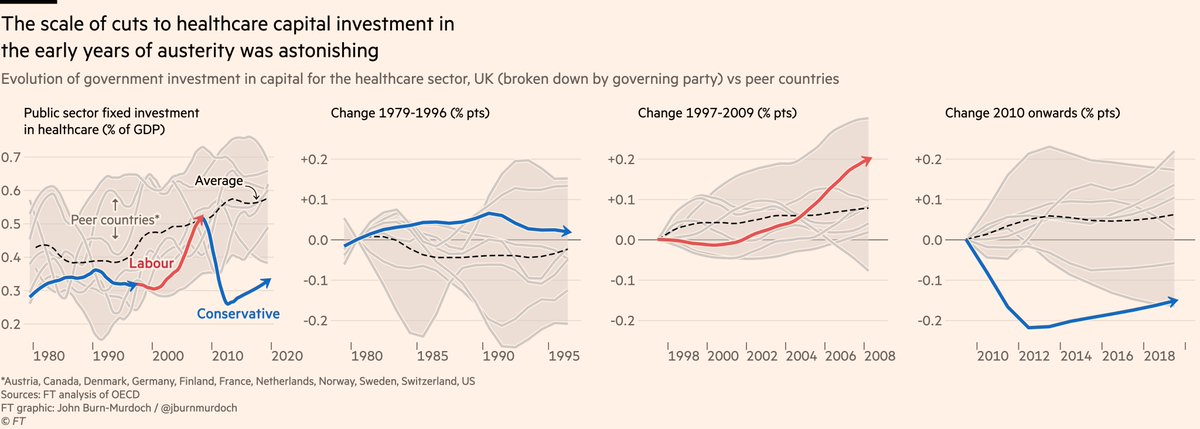
That dearth of investment in infrastructure and technology means that despite nominally having more doctors than ever before and more funding than ever before, the NHS finds itself hamstrung by acute shortages of beds and the equipment that gets people out of beds faster. 

It’s also worth pausing to note that the assumption implicit in the ring-fencing of the health budget — that the only spending that protects and promotes health is NHS spending — has proved a false economy.
Cuts to housing and communities budgets have left Britain’s dwellings in such a dire state that they are now causing deaths among children theguardian.com/uk-news/2022/n…
So, that gives us:
• Prolonged cuts to overall spending
• Especially deep cuts to capital investment
• A health budget that was protected in name only and which now looks more like a gradual squeeze
What has been the impact?
• Prolonged cuts to overall spending
• Especially deep cuts to capital investment
• A health budget that was protected in name only and which now looks more like a gradual squeeze
What has been the impact?
Let’s start with the most striking: the astonishingly clear association between the governing party, health spending and the functioning of the NHS.
Waiting lists swelled under Major, shrunk under Labour as health funding soared, before climbing again under Tory austerity.
Waiting lists swelled under Major, shrunk under Labour as health funding soared, before climbing again under Tory austerity.
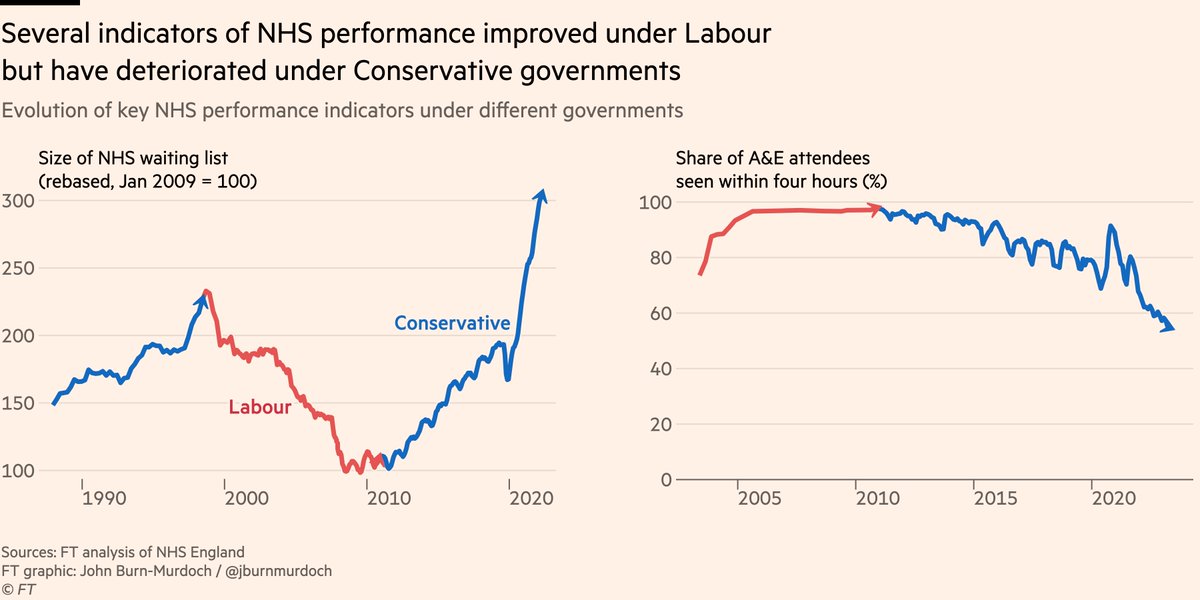
Those mounting NHS pressures and the wider deterioration of public health show up in data on avoidable deaths — deaths that should not occur with timely and effective healthcare — which under austerity flattened off and then began rising after years of steady decline. 

It’s a very similar picture with life expectancy.
Although progress here has slowed in many countries over the last decade, under austerity the the UK’s trajectory has flattened off much more quickly than most.
Although progress here has slowed in many countries over the last decade, under austerity the the UK’s trajectory has flattened off much more quickly than most.

And of course the impacts of a conscious erosion of state capacity extend well beyond health.
Real wages are below where they were 18 years ago. There has not been a single year since austerity began when the average wage has matched the peak under the last Labour government.
Real wages are below where they were 18 years ago. There has not been a single year since austerity began when the average wage has matched the peak under the last Labour government.

You might appear to "get away with" austerity for a few years if you’re lucky, but when your luck runs out you’re going to be in a world of trouble.
Britain is dealing badly with the shocks of the last 2 years because it has been gutted over the last 12
enterprise-sharing.ft.com/redeem/c540270…
Britain is dealing badly with the shocks of the last 2 years because it has been gutted over the last 12
enterprise-sharing.ft.com/redeem/c540270…

In conclusion, Cameron and Osborne are lucky to have escaped the fate of Truss and Kwarteng.
Like Trussonomics, austerity was ideology-over-evidence. Unlike Trussonomics, it was not quickly reversed, and so has gone on to cause enormous, lasting damage.
enterprise-sharing.ft.com/redeem/c540270…
Like Trussonomics, austerity was ideology-over-evidence. Unlike Trussonomics, it was not quickly reversed, and so has gone on to cause enormous, lasting damage.
enterprise-sharing.ft.com/redeem/c540270…
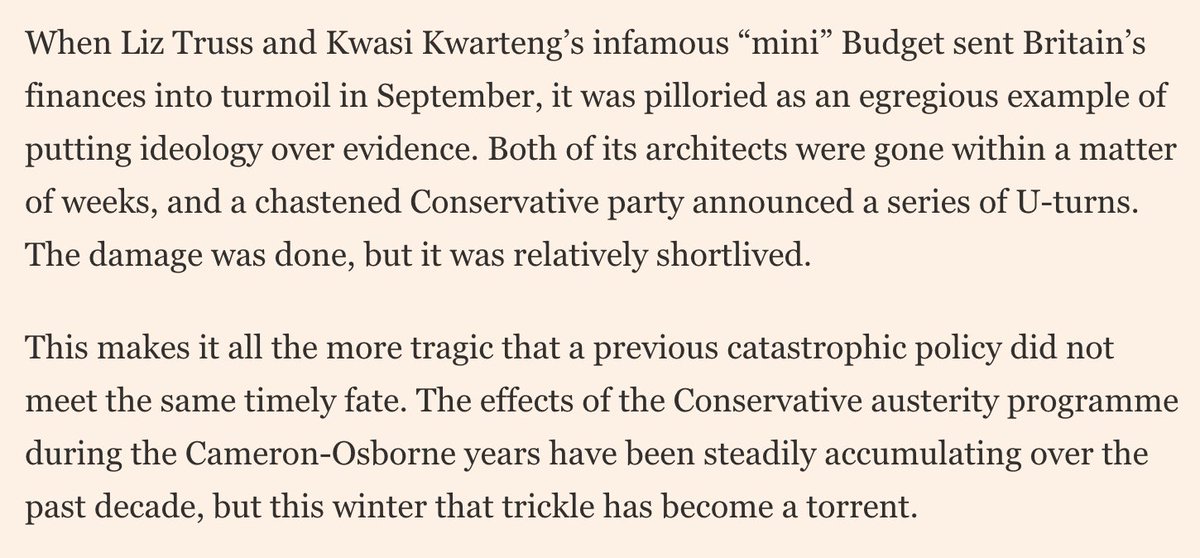
Here’s the full piece again: enterprise-sharing.ft.com/redeem/c540270…
• • •
Missing some Tweet in this thread? You can try to
force a refresh


